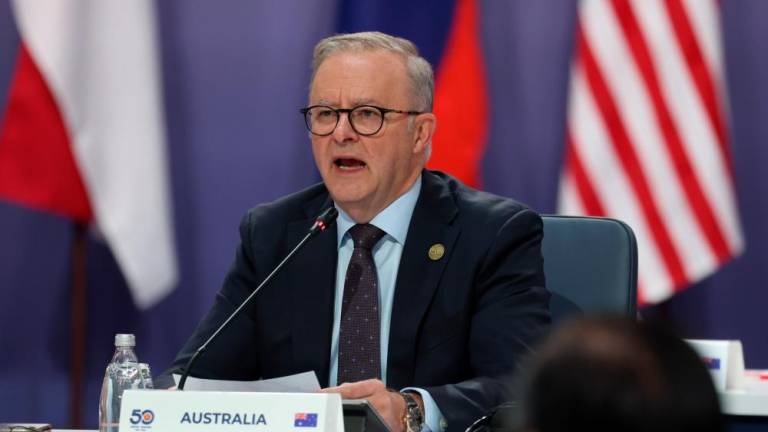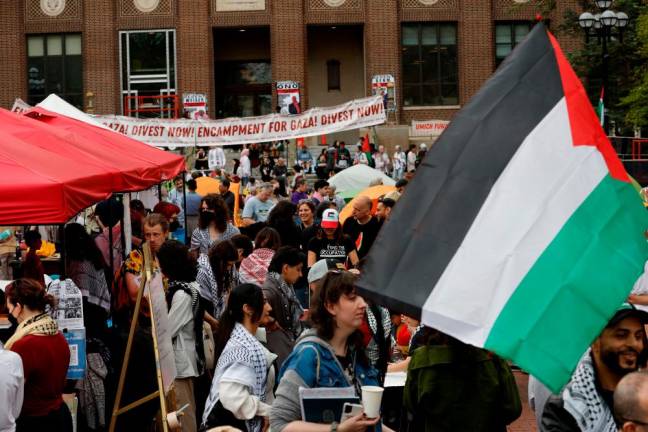IN a recent meeting with Sabah Tourism, Culture and Environment Minister Datuk Christina Liew, the Sabah Tourism Federation (STF) called on the government to set up a panel to tackle the issues faced by the industry and act against illegal operators.
STF was established in 2015 to unite 10 trade associations and associates from various sectors of the tourism industry to pursue mutual interests and cooperation.
STF president Tonny Chew was reported to have said, “We want authorities to put a stop to the illegal use of ‘white vans’ by certain quarters to transport tourists from one place to another. They are not only flouting the law but are a danger to public safety, given that these vehicles are not registered with the authorities.”
He added that illegal tour operations as well as unregulated accommodation providers such as Airbnb and illegal homestays are affecting licensed tours, hotels and homestay operators.
He assured the minister that STF would be receptive to ideas or suggestions for industry players to take up for the good of the tourism industry.
The issues raised are nothing new and have existed even before the establishment of STF.
It is customary for trade associations to seek and have regular meetings with authorities but most of them were nothing more than airing of grievances.
These became evident when the same issues were brought up repeatedly and employed the same approach but to no avail.
Albert Einstein was credited with having defined insanity as “Doing the same thing over and over again and expecting a different result”.
This time, STF called for a panel to be set up for licensing and enforcement involving multi-government agencies such as the Tourism, Arts and Culture Ministry, Road Transport Licensing Board Sabah, Road Transport Department, Royal Malaysia Police, Tourism, Culture and Environment Ministry, Sabah and local authorities such as Kota Kinabalu City Hall.
STF should go beyond calling for such a panel to be set up by doing some homework so that the panel can hit the ground running instead of being bogged down with lengthy clarifications and investigations before effective enforcement actions can be planned or taken.
The same approach applies to other states as the problems faced by tourism industry players in Sabah are found throughout the country in varying degrees, be they illegal tourism businesses or poor enforcement.
Granted, many challenges need to be addressed.
But it would be a great start if the two main issues highlighted by STF could be overcome first. They are white vans and illegal homestays.
In Sabah, passenger vans under private registration used for ferrying visitors are known as white vans, as many are white, unlike all vans or bas persiaran in the country that are painted green at the lower portion of the vehicle body for easy identification.
But some unmarked vans could be licensed under limousine taxis or “hire and drive”.
It is a given that those licensed for taxis are fully licensed and automatically insured with “legal liability to passenger” cover as required in all buses and taxis.
Hire-and-drive vans are meant to be driven by customers but if the vehicle rental company wishes to offer transport services by providing the van with a driver, then the motor insurance needs additional passenger risk cover.
Contrary to popular belief, both “legal liability to passenger” and “passenger risk” covers do not insure the passengers.
Both cover the driver’s liability to passengers in the event the driver was at fault in an accident.
But if a runaway lorry were to crash into a stationary van, both the van driver and insurance company are not liable as the van driver was not at fault.
Injured passengers would have to sue the lorry driver to claim under third-party cover for injuries which is compulsory for all vehicles.
In all cases, insurance companies are quick to repudiate cover if they could establish vehicles or drivers without valid licences such as private vehicles being used for commercial purposes or vehicles driven under the influence of drugs or alcohol.
If so, victims that were successful in their multi-million-ringgit suit against a poor lorry driver without money or asset to his name may win nothing more than just paper judgement.
Many people, including taxi, van and bus operators, assume that passengers in their vehicles are covered by insurance.
But when I asked them to name the cover and when it kicks in, they would be unable to substantiate it.
One needs to be clear and specific when raising and discussing to solve issues and not make general statements such as, “They are not only flouting the law but are a danger to public safety, given these vehicles are not registered with the authorities”.
This is especially so when many private vans are used for e-hailing which has taken a huge chunk of business away from disgruntled tour companies operating with licensed vans.
But with amendments to the Land Public Transport Act 2010 and Commercial Vehicles Licensing Board Act 1987 passed in the Dewan Rakyat in 2017, private vehicles are allowed to be used to transport passengers through e-hailing service and are no longer an issue nationwide.
However, if tour companies or tourist guides are receiving bookings from overseas tour operators or directly from passengers and using private vans to provide airport or overland transfers or sightseeing tours, these are offences and ought to be stopped.
This could be done using video evidence captured by smartphones or closed-circuit television cameras installed strategically at the airport and various attractions, identifying both the drivers and vehicles involved.
If offenders were let off, the enforcement agency could provide an answer or offer an explanation during meetings in the multi-agency panel as proposed by STF.
The other issue raised is unregulated accommodation providers such as Airbnb and illegal homestays, as they have severely impacted licensed tours, hotels and homestay operators.
Both Uber and Airbnb are humbugs. Uber may have started as a ride-sharing app in 2009 when different passengers rode in the same black cab to share costs but continued calling itself a ride-sharing app long after its discontinuation by switching to ride-hailing in 2012.
Airbnb may have started in 2008 when two hosts welcomed three guests to their San Francisco home and has rapidly developed into a short-term rental scheme, where most operators let out vacant rooms, apartments or houses they are not staying in and therefore not considered homes.
They are homestays if owners or tenants stay there and host short-term guests.
If not, they are unlicensed hotels if guests merely use the facilities much like checking into a hotel and staying in a room, apartment or house.
The authorities are unlikely to ban online companies that arrange short-term unlicensed accommodations, as they are perceived to be cheaper and, therefore, popular with many tourists.
But providers of unlicensed accommodations need to be regulated for safety, security and tax.
No doubt, licensed tour operators have lost some business to illegal van operators, but licensed hotels and homestay operators have suffered even greater losses to unlicensed accommodation providers after having invested huge sums of money in their properties.
Much to their chagrin, licensed operators were often easy targets of enforcement agencies for minor breaches of rules and regulations, and felt like sitting ducks, while unlicensed operators were getting away scot-free as it requires more effort to hunt them down.
Granted, anyone breaking any rule or regulation should be hauled up for misdeeds.
Similarly, regulators that failed in their enforcement duties should also be held accountable if the industry is plagued with illegal operators having a field day.
When rules and regulations are not enforced, legitimate operators are the ones that suffer, and individual enforcement agencies may smack off corruption.
If materialised, the multi-agency panel proposed by STF should be much more effective in cracking down on unlicensed operators.
YS Chan is a master trainer for Mesra Malaysia and Travel and Tours Enhancement Course as well as an Asean Tourism Master Trainer. He is also a transport and training consultant and writer. Comments: letters@thesundaily.com











